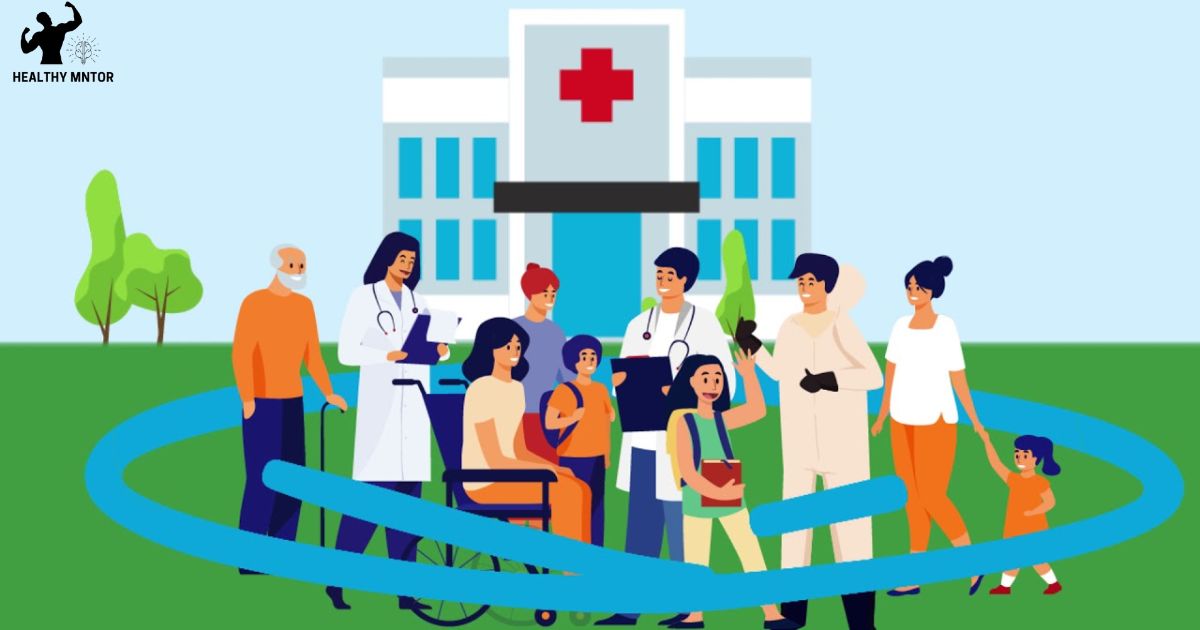In the realm of public health, various approaches are employed to safeguard and improve the well-being of communities. Vaccination campaigns, disease surveillance, health education programs, access to clean water and sanitation, and policy development all play pivotal roles in promoting the health of populations. As the saying goes, “Prevention is better than cure.” This article aims to explore which of the aforementioned strategies exemplify public health, providing concise, evidence-based insights to inform and engage readers who seek to be part of a community invested in collective well-being.
Key Takeaways
- Vaccination campaigns are a key example of public health as they aim to promote the widespread administration of vaccines, educate individuals about their importance, and achieve herd immunity to protect vulnerable populations.
- Disease surveillance and outbreak response are another example of public health, as they involve tracking the occurrence and distribution of diseases, preparing for outbreaks through response plans and training, and implementing rapid response measures to control disease spread.
- Health education and promotion programs contribute to public health by engaging the community, providing information and resources for informed health decisions, and promoting healthy behaviors and lifestyles.
- Access to clean water and sanitation is an important aspect of public health, as it reduces the risk of waterborne diseases, promotes good hygiene practices, and improves overall health outcomes.
Vaccination Campaigns
Vaccination campaigns are a prominent manifestation of public health efforts aimed at preventing the spread of infectious diseases through the widespread administration of vaccines. These campaigns often involve community outreach programs that aim to educate and inform individuals about the importance of vaccination, considering the broader impact of Social Determinants of Health. By engaging with communities and addressing their concerns, healthcare professionals can help build trust and encourage vaccine uptake while recognizing and mitigating the various social determinants that may impact healthcare access and decision-making.
One of the key goals of vaccination campaigns is to achieve herd immunity, which is the indirect protection of unvaccinated individuals through the vaccination of a significant portion of the population. This prevents the spread of diseases within the community and protects vulnerable individuals who may not be able to receive vaccines, such as infants or individuals with compromised immune systems. Vaccination campaigns play a crucial role in safeguarding public health and preventing the resurgence of infectious diseases.
Disease Surveillance and Outbreak Response
Disease surveillance and outbreak response are essential components of public health, as they involve monitoring and controlling the spread of infectious diseases within a population. These activities play a crucial role in protecting the public and preventing the further transmission of diseases. Here are some key aspects of disease surveillance and outbreak response:
- Disease tracking: Public health agencies track the occurrence and distribution of diseases to identify patterns, risk factors, and vulnerable populations. This information helps in developing targeted interventions and preventive measures.
- Emergency preparedness: Public health agencies prepare for outbreaks by establishing response plans, training healthcare workers, and stockpiling medical supplies. This ensures a swift and effective response to contain and manage outbreaks.
- Rapid response: When an outbreak occurs, public health agencies work to identify cases, trace contacts, and implement measures to control the spread of the disease. This includes isolating infected individuals, providing treatment, and implementing preventive measures such as vaccines or quarantine.
Health Education and Promotion Programs
One example of public health is the implementation of health education and promotion programs. These programs aim to engage the community and promote behavior change to improve the overall health of individuals and populations. Health education programs provide information and resources to empower individuals to make informed decisions about their health. They may focus on topics such as nutrition, physical activity, tobacco and substance abuse prevention, and sexual health.
Promotion programs, on the other hand, use strategies to encourage individuals to adopt healthy behaviors and lifestyles. This may include implementing policies that support healthier environments, providing incentives for healthy choices, or offering group activities and workshops. By combining community engagement and behavior change, health education and promotion programs effectively contribute to the broader goal of public health.
Access to Clean Water and Sanitation
Access to clean water and sanitation is an essential component of public health. Ensuring that communities have access to clean water and sanitation facilities can have a significant impact on preventing the spread of waterborne diseases and promoting good hygiene practices. Here are some key reasons why access to clean water and sanitation is crucial for public health:
- Reduces the risk of waterborne diseases: Clean water and proper sanitation facilities help prevent the transmission of diseases like cholera, typhoid, and diarrhea, which are caused by contaminated water.
- Promotes good hygiene practices: Access to clean water and sanitation facilities enables individuals to practice good hygiene, such as handwashing, which is essential for preventing the spread of infectious diseases.
- Improves overall health outcomes: Adequate access to clean water and sanitation contributes to better health outcomes, reducing the burden of water-related illnesses on individuals and communities.
Ensuring access to clean water and sanitation is just one aspect of public health. Policy development and implementation are crucial for addressing these issues on a larger scale.
Policy Development and Implementation
Policy development and implementation play a pivotal role in addressing public health challenges such as access to clean water and sanitation. Effective policies help to ensure that individuals and communities have equitable access to essential resources and services, promoting health equity. Policy evaluation is crucial in determining the effectiveness and impact of public health policies. Evaluating policies allows for evidence-based decision-making and helps identify areas for improvement.
It helps in assessing whether policies are achieving their intended outcomes and if they are reaching the most vulnerable populations. Health equity, which is the principle of ensuring that everyone has a fair and just opportunity to achieve optimal health, should be at the forefront of policy development and implementation. By prioritizing health equity, policies can address the underlying social determinants of health and work towards reducing health disparities in communities.
FAQ’s
What Is the Purpose of Vaccination Campaigns in Public Health?
The purpose of vaccination campaigns in public health is to promote the importance of immunization and prevent the spread of infectious diseases. These campaigns aim to educate and encourage individuals to receive vaccines, ultimately protecting public health and reducing the burden of preventable illnesses.
How Do Disease Surveillance and Outbreak Response Efforts Contribute to Public Health?
Disease surveillance and outbreak response efforts play a crucial role in public health by preventing the spread of diseases and protecting community health. These efforts allow for early detection, rapid response, and effective containment of outbreaks.
What Strategies Are Commonly Used in Health Education and Promotion Programs?
Strategies commonly used in health education and promotion programs include health communication, community engagement, behavior change interventions, and policy advocacy. These programs aim to improve public health outcomes by increasing knowledge, promoting healthy behaviors, and creating supportive environments.
What Are the Benefits of Ensuring Access to Clean Water and Sanitation in Public Health?
Ensuring access to clean water and sanitation in public health leads to numerous benefits. It prevents the spread of waterborne diseases, reduces child mortality rates, improves overall health outcomes, and complements vaccination campaigns in promoting community well-being.
How Does Policy Development and Implementation Impact Public Health Outcomes?
Policy development and implementation play a crucial role in shaping public health outcomes. Policies that prioritize public health can lead to improved access to healthcare services, increased disease prevention efforts, and better overall population health.
Conclusion
In conclusion, public health encompasses various initiatives such as vaccination campaigns, disease surveillance and outbreak response, health education and promotion programs, access to clean water and sanitation, as well as policy development and implementation. These efforts work together like the intricate gears of a clock, ensuring the well-being and vitality of communities. By focusing on prevention, education, and ensuring basic necessities, public health acts as a shield, safeguarding the population against the onslaught of diseases and promoting a healthier future.







